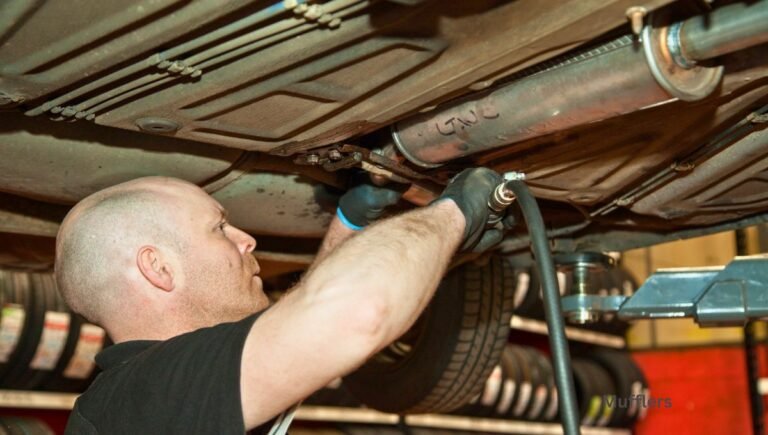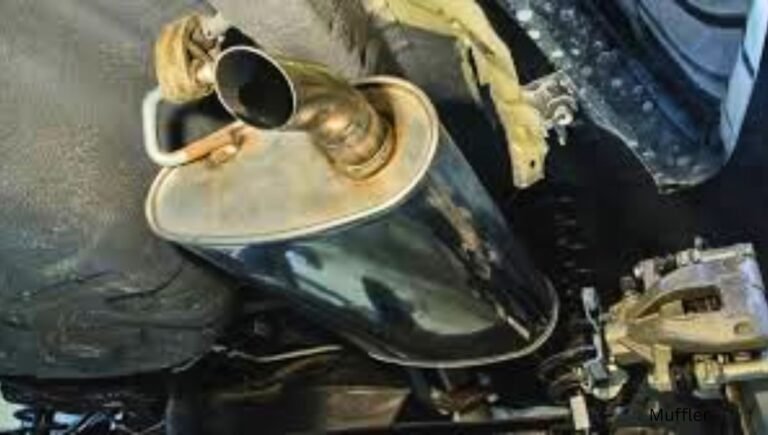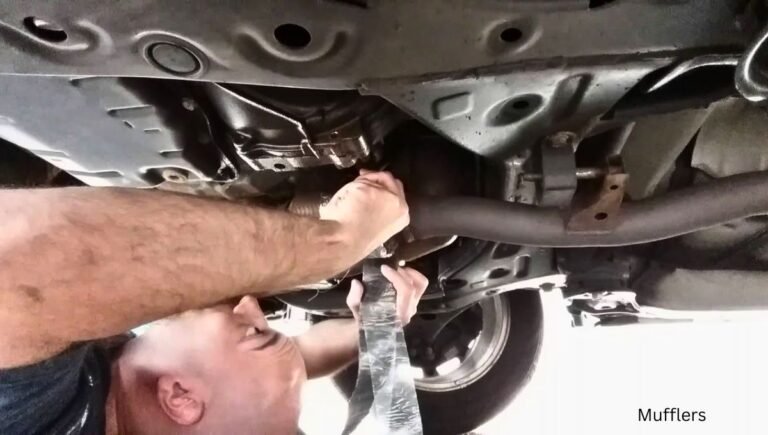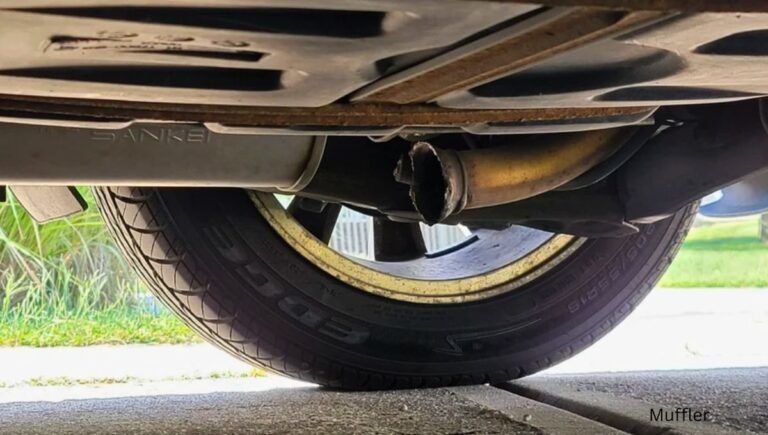Can a Clogged Muffler Cause Loss of Power? Find Out!
Yes, a clogged muffler can cause a loss of power in a vehicle. When the muffler becomes clogged, it restricts the flow of exhaust gases, resulting in decreased engine performance and power output.
This can manifest as reduced acceleration, difficulty in reaching higher speeds, and overall sluggishness in the vehicle’s performance. If left unresolved, a clogged muffler can lead to further engine issues and potential damage.
Regular maintenance and inspection of the muffler and exhaust system are essential to ensure optimal engine performance and prevent power loss.
Introduction To Muffler Functionality
When it comes to the performance of a vehicle, the functionality of its exhaust system plays a crucial role. The muffler, a key component of the exhaust system, serves multiple purposes and can impact the overall performance of the vehicle. In this section, we will explore the purpose of a muffler in exhaust systems and the signs of a clogged muffler that can lead to a loss of power.

Purpose Of A Muffler In Exhaust Systems
A muffler, also known as a silencer, is designed to reduce the noise produced by the exhaust gases exiting the engine. In addition to minimizing sound emissions, the muffler also plays a role in enhancing engine performance by maintaining back pressure and reducing exhaust turbulence. This helps to improve fuel efficiency and overall engine function.
Signs Of A Clogged Muffler
When a muffler becomes clogged, it can lead to a variety of performance issues in a vehicle. Some common signs of a clogged muffler include a noticeable decrease in engine power, reduced fuel efficiency, and an increase in exhaust noise. Additionally, a clogged muffler can lead to excessive exhaust system heat, potentially causing damage to other components.
The Link Between Exhaust Flow And Engine Power
The performance of an engine is not just about the fuel and air mixture. The exhaust system plays a vital role in ensuring the engine operates optimally. The exhaust system is designed to remove the exhaust gases produced by the engine, which contributes to the engine’s power.
A clogged muffler can restrict the flow of exhaust gases, which can affect the engine’s performance. In this post, we will explore the basics of engine exhaust dynamics and the effects of restricted exhaust on performance.
Basics Of Engine Exhaust Dynamics
The engine exhaust system is made up of several components, including the exhaust manifold, catalytic converter, muffler, and tailpipe. When the engine is running, it produces exhaust gases that flow through the exhaust manifold and into the catalytic converter. The catalytic converter converts harmful gases into less harmful ones. The gases then flow through the muffler, where they are further silenced before exiting through the tailpipe.
The exhaust gases flow through the system due to the pressure created by the engine’s combustion process. The exhaust gases are under pressure and are forced out of the engine through the exhaust manifold. The pressure helps to push the gases through the system and out of the tailpipe.
Effects Of Restricted Exhaust On Performance
A clogged muffler can cause a reduction in the flow of exhaust gases. This restriction can affect the engine’s performance and result in a loss of power. A clogged muffler can also cause the engine to run hotter, which can lead to engine damage.
The restriction caused by a clogged muffler can also affect the fuel economy of the vehicle. The engine has to work harder to push the exhaust gases out of the system, which can result in increased fuel consumption.
It is essential to keep the exhaust system in good condition to ensure the engine operates optimally. Regular maintenance and inspection of the exhaust system can help to identify any issues before they cause significant damage to the engine.
Ensuring the engine’s exhaust system is working correctly is vital for optimal engine performance. A clogged muffler can cause a loss of power and increased fuel consumption. Regular maintenance and inspection of the exhaust system can help to identify any issues before they become a significant problem.
Clogged Mufflers And Power Loss
A muffler is an important component of your vehicle’s exhaust system, responsible for reducing noise and harmful emissions. However, a clogged muffler can cause several issues, including a loss of engine power. In this post, we’ll explore how a clogged muffler affects engine power and the symptoms of power loss due to muffler issues.
How A Clogged Muffler Affects Engine Power
A clogged muffler can cause a significant reduction in engine power. This is because the exhaust gases can’t escape the engine efficiently, leading to a buildup of backpressure. The increased pressure makes it harder for the engine to expel exhaust gases, which can cause a decrease in power and performance.
The engine will also have to work harder to push the exhaust gases out, which can lead to increased fuel consumption. This can be particularly noticeable when accelerating or climbing hills, where you may feel a lack of power.
Symptoms Of Power Loss Due To Muffler Issues
If your muffler is clogged, you may notice several symptoms that indicate a loss of power. These include:
- Reduced acceleration
- Difficulty climbing hills
- Increased fuel consumption
- Engine misfires or stalls
- Excessive exhaust noise
If you’re experiencing any of these symptoms, it’s essential to have your muffler inspected by a professional mechanic. They can diagnose the issue and recommend the necessary repairs.
In conclusion, a clogged muffler can cause a loss of engine power, leading to reduced acceleration, increased fuel consumption, and other issues. Regular maintenance and inspection of your vehicle’s exhaust system can help prevent muffler clogs and ensure optimal engine performance.
Diagnosing A Clogged Muffler
Diagnosing a clogged muffler is crucial for maintaining the optimal performance of your vehicle. A clogged muffler can lead to a loss of power and negatively impact fuel efficiency. Here are some key methods for diagnosing a clogged muffler:
Visual Inspection Tips
Inspect the muffler for any signs of damage or blockage. Look for excessive soot or black residue on the exterior of the muffler. Check for any physical obstructions, such as debris or visible damage to the exhaust system components.
Auditory Clues And Performance Tests
Listen for unusual sounds coming from the exhaust system, such as hissing or rattling noises. Perform a back pressure test to measure the pressure within the exhaust system, which can indicate a potential clog. Additionally, conduct a performance test to assess the vehicle’s acceleration and overall power output.
Common Causes Of Muffler Blockages
Muffler blockages, often caused by debris or corrosion, can lead to a loss of power in vehicles. The obstruction restricts exhaust flow, affecting engine performance and efficiency. Regular maintenance can prevent clogged mufflers and ensure optimal power output.

A clogged muffler can be a major headache for any vehicle owner. Not only can it cause annoying noises and unpleasant odors, but it can also lead to a loss of power in your vehicle. Understanding the common causes of muffler blockages can help you identify and address the issue before it becomes a bigger problem.
Accumulation Of Soot And Debris
One of the primary reasons for muffler blockages is the accumulation of soot and debris. Over time, the exhaust gases passing through the muffler can leave behind residue, including carbon particles and other contaminants. These particles can build up and restrict the flow of exhaust gases, leading to a loss of power.
To prevent the accumulation of soot and debris, regular maintenance and cleaning of the muffler are essential. This involves inspecting the muffler for any signs of buildup and using appropriate cleaning methods to remove the residue. By keeping the muffler clean, you can ensure optimal performance and prevent power loss.
Rust And Corrosion Build-up
Another common cause of muffler blockages is the buildup of rust and corrosion. Mufflers are exposed to various environmental elements, such as moisture, road salt, and chemicals, which can cause the metal to corrode over time. As rust and corrosion accumulate, they can obstruct the exhaust flow and hinder the engine’s ability to expel gases efficiently.
Regular inspections of the muffler for signs of rust and corrosion are crucial. If any areas show signs of damage, they should be addressed promptly to prevent further deterioration and potential blockages. Applying rust inhibitors or protective coatings can also help extend the lifespan of the muffler and reduce the risk of power loss.
In conclusion, a clogged muffler can indeed cause a loss of power in your vehicle. The accumulation of soot and debris, as well as rust and corrosion build-up, are common culprits behind muffler blockages. Regular maintenance, cleaning, and inspections can help you prevent these issues and ensure optimal performance for your vehicle.
The Impact On Fuel Efficiency
When it comes to the impact on fuel efficiency, a clogged muffler can significantly reduce the overall fuel economy of a vehicle. This reduction in fuel efficiency is directly related to the restriction in exhaust flow caused by the clogged muffler. Understanding the relationship between exhaust restrictions and power loss is essential in comprehending the impact on fuel efficiency.
Reduced Fuel Economy From Exhaust Restrictions
A clogged muffler can lead to reduced fuel economy due to the increased back pressure in the exhaust system. This back pressure forces the engine to work harder to expel the exhaust gases, resulting in higher fuel consumption. Additionally, the inefficiency caused by the restriction in exhaust flow can lead to suboptimal fuel combustion, further decreasing fuel efficiency.
Understanding The Relationship With Power Loss
The relationship between a clogged muffler and power loss directly affects fuel efficiency. When the engine experiences power loss due to the restricted exhaust flow, it compensates by consuming more fuel to maintain performance. This increased fuel consumption contributes to reduced fuel efficiency, emphasizing the critical connection between a clogged muffler, power loss, and its impact on fuel economy.
Repair Or Replace: Addressing Muffler Issues
If your vehicle is experiencing a loss of power, a clogged muffler could be the culprit. It’s important to address muffler issues promptly, as they can significantly impact your car’s performance. Consider consulting a professional to determine whether a repair or replacement is necessary for optimal functionality.
Fixing A Clogged Muffler
When a clogged muffler restricts airflow, engine performance may suffer.
Remove blockages by cleaning out debris or using a muffler cleaner.
Regular maintenance can prevent clogs and power loss issues.
When To Opt For Muffler Replacement
If the muffler is rusted or damaged beyond repair, replacement is necessary.
Signs include excessive noise, rust holes, or visible damage.
Replacing a damaged muffler can restore engine power and efficiency.
Preventive Measures And Regular Maintenance
Preventive Measures and Regular Maintenance are crucial to ensuring your vehicle’s exhaust system functions optimally. By taking proactive steps and conducting routine inspections, you can prevent issues like a clogged muffler that can lead to a loss of power.
Routine Exhaust System Check-ups
Regularly inspect your exhaust system for signs of damage or blockages. Look out for rust, holes, or any unusual noises that may indicate a problem with the muffler. Addressing issues promptly can prevent power loss and extend the life of your muffler.
Tips For Prolonging Muffler Life
- Ensure your muffler is properly secured and not dragging on the ground.
- Avoid driving over rough terrain that could damage the exhaust system.
- Keep your vehicle well-maintained to prevent excessive exhaust system wear.
- Regularly clean your muffler to prevent build-up of debris and blockages.
Conclusion: The Importance Of A Healthy Exhaust System
A clogged muffler can lead to a loss of power in your vehicle. It is important to maintain a healthy exhaust system to ensure proper engine performance and fuel efficiency. Regular inspection and cleaning of the muffler can prevent power loss and maintain optimal functioning of your vehicle.
Recap Of Muffler’s Role In Vehicle Performance
A clogged muffler can restrict exhaust flow, leading to power loss.
Final Thoughts On Keeping Your Muffler Unclogged
Regular maintenance and inspections can prevent muffler issues.
Conclusion
In essence, a clogged muffler can indeed lead to a loss of power in your vehicle. It is crucial to address muffler issues promptly to maintain optimal engine performance and fuel efficiency. Regular maintenance and timely repairs can prevent power loss and ensure a smoother driving experience.






